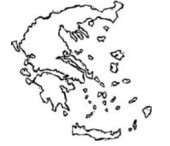 The Parliament in Greece attempted and failed to elect a President on Monday, December 29th. Prime Minister Antonis Samaras had nominated Stavros Dimas to the post, but Dimas could not get the necessary votes in the third ballot. This serves as, in effect, a vote of no confidence in the existing coalition government, and the PM has announced new elections.
The Parliament in Greece attempted and failed to elect a President on Monday, December 29th. Prime Minister Antonis Samaras had nominated Stavros Dimas to the post, but Dimas could not get the necessary votes in the third ballot. This serves as, in effect, a vote of no confidence in the existing coalition government, and the PM has announced new elections.
As Reuters puts it, the country has entered “a new period of political turmoil just as it emerges from economic crisis.”
Political Turmoil
The forthcoming (January 25th) elections will mark yet another contest between pro-austerity and anti-austerity forces in Europe. Austerity in this instance means “sticking to the deal” made after the last round of crises. Anti-austerity means abandoning that bail-out deal. Further, the cause of anti-austerity, represented by the Syriza Party, seems the most likely victor.
Let’s back up a bit. According to the economist Vicky Pryce (born in Greece though educated in Britain at the London School of Economics), from the very beginning the Eurozone was sold to the people of its participating countries, other than Germany, as a way to “bind Germany into a union covering most of the countries in Europe” where presumably that powerful country’s Soderweg may be constrained or re-routed as necessary. Unfortunately this decision on political grounds didn’t require that any thought be given to “whether the result might bear any resemblance to an optimal currency area.”
Pryce also contends, in her book Greekonomics, that when Greece asked to be allowed to participate in the single currency in 2000, it did so was largely because the people of Greece were “in reality secretly hoping that the Brussels bureaucrats would take over and free them from the control of their politicians, who they regarded as corrupt.”
By most accounts, that experiment did not go well. By 2011-12 there was a widespread expectation that the Greeks were about to abandon the euro and re-create the drachma. This expectation fed upon the rise of a left-wing party (originally a coalition of parties, then a single organizational entity) called Syriza. Syriza quadrupled its representation in parliament in the election of May 2012. It is a sufficient comment on the volatile nature of Greek politics that there was another general election the following month. In these June elections, Syriza gained ground again. It became the main opposition party, though a coalition of the New Democracy and PASOK formed the government.
Maneuverers
It has not been entirely clear whether Syriza favors abandonment of the euro or not. It seems to be run by a combination of ideologues and political maneuverers, and the latter at least regard some ambiguity about such matters as valuable.
Still: Syriza represents anger at the scene of the northern Europeans bossing Greece around. This anger has congealed around the terms of the bail-out negotiated between the Samaras government on one hand, and the troika (IMF, EU, and ECB) on the other.
The leader of Syriza has already said, in response to the failed elevation of Dimas to the presidency: “With the will of our people, in a few days bailouts tied to austerity will be a thing of the past. The future has already begun.”
Brave words about “the future” notwithstanding, the present and recent past look a lot like a merry-go-round, in which one Greek government succeeds another, each election giving rise to a new set of names and the same old frustrations, and soon enough to yet another election, and so forth. It seems distressingly likely that the January 25th election will continue that pattern.
What does this mean for investors? Word of the dissolution of Parliament brought an immediate plunge in Greek equities. The cap-weighted ASE index lost more than 10% of its value. Interest on Greek sovereign jumped.
There are powerful centralizing forces on the continental of Europe, and one should not lightly disregard their force by betting on a Greek exit. That bet has failed before, in the earlier turns of this same merry-go-round. Investors have to understand the volatility of the political circumstances they face if they have any interest in Greek debt or equity, of course. Nonetheless, the most daring of alpha seekers may now just mutter, “no guts no glory” under their respective breaths and leap right in.



